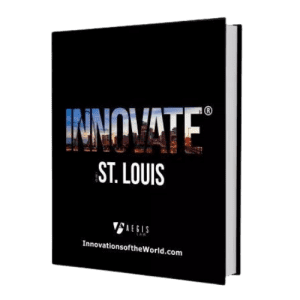Innovation is best achieved when you align it with your competitive advantage—what you do that nobody else could do better. When you focus on your competitive advantage and open yourself to think creatively about trying to best yourself. If copying others is best practice, then besting yourself is next practice—creating what does not yet exist.
To someone hoping to do that in St. Louis, I would say: Seek to understand the tangible dynamics of this community.
I spent my first year in the city simply talking to leaders, talking to entrepreneurs, and taking the time to really understand their businesses—and what kept them up at night. What was it that they wanted to do next?
Those conversations gave me a strong foundation and enabled me to synthesize ideas and feedback into a strategy. For someone in academia, it was important for me to put together curricula based on the current and future challenges that business leaders faced. I discovered my own competitive advantages through the lens of this community.
Just a Quick Note:
InnovationsOfTheWorld.com has partnered with Trade License Zone (TLZ) to support global innovators looking to expand internationally. Take advantage of the UAE’s Free Zones—enjoy streamlined setup, low corporate taxes, and a strategic gateway to the Middle East and beyond.
Get Your UAE Free Zone License Fast & Easy!To anyone seeking to do the same, I would also suggest scheduling an appointment with Cortex. Through its partnerships, as with Washington University, and through its programs, it orients entrepreneurs to what St. Louis is all about—and what is next. They can help you to see what’s around the corner; it’s the “next practice” and not just the best practice that Cortex can help you to cultivate.
In The Rise of the Creative Class, Richard Florida talks about three aspects that thriving cities in the 21st century must have: technology, talent, and tolerance. A fourth factor is a great institution—a great university. For St. Louis to own the future, for us to remain relevant into the future, we must embrace the three Ts and our institutions— institutions like Washington University, Cortex, and others who are growing the city’s innovation ecosystem.
Technology is alive and well here, as is talent. St. Louis leads the nation in newly created womenowned businesses, for example. But one thing that we still need to work on is tolerance. We need to make sure we’re creating an environment that is conducive and welcoming to people from different walks of life. We’ve got to do it. When we do, I’m confident that we’ll continue to see the reemergence of this remarkable community.
Everything I’m describing—the idea of “next practice,” of developing competitive advantages with your community in mind, of embracing the three Ts—necessitates a sense of constructive impatience. We cannot afford to be spectators in a world that is dramatically changing. Irrelevancy is worth than death. We need to fight that tendency toward complacency by being anxious, being creative, by pushing ourselves, and seeking collaboration with one another. If we are bold enough, if we are strong enough, and courageous enough to embrace that, then St. Louis will navigate the future and be a meaningful player in that future.















